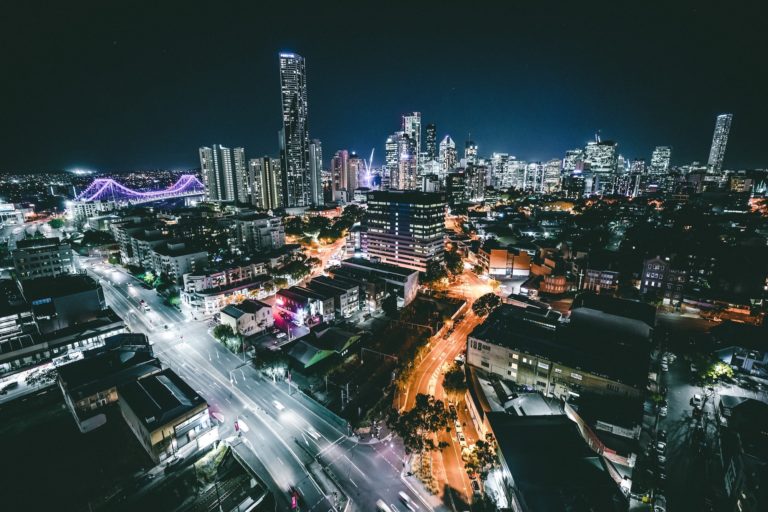Professor Carolyn Evans, Vice Chancellor and President of Griffith University
Good evening, everybody. I’m Carolyn Evans, the Vice Chancellor of Griffith University and Griffith University, along with our partner HOTA – the Home of the Arts here on the beautiful Gold Coast – is really grateful to welcome all of you here tonight. Can I begin by respectfully acknowledging the traditional custodians of the lands on which we meet tonight, pay my respect to their elders past and present, and to all Aboriginal and Torres Strait Islander people here today. Could I also acknowledge the Honorable Anastasia Palaszczuk MP, Premier of Queensland, Minister for Trade, and our special guest tonight; the Chancellor of Griffith University, Mr. Henry Smerdon; Megan Scanlon, Minister for the Sciences, Youth and Great Barrier Reef; Councillors of the City of the Gold Coast, Ryan Bayldon-Lumsden, Mark Hamill, Brooke Patterson, Darren Taylor and Pauline Young; Professor Emeritus Ned Pankhurst, Chair of the Board of Directors at HOTA; Ms. Criena Gehrke, CEO of HOTA; and of course, our Mr. Kerry O’Brien, the host of the Better Future for All series. It’s great pleasure to welcome you to the seventh in the Better Future for All series of conversations, and the first for 2021. It’s being held here at the Home of the Arts, and this is the first time we’ve been able to have a large audience, so it’s delightful to see you all here tonight. Our aim in this series is to bring together outstanding thinkers and leaders and entice them over a long form interview to share their insights in complex and thoughtful ways about the future. We’re very privileged tonight to be hearing directly from the Queensland Premier, the Honorable Anastasia Palaszczuk, less than three months following her party’s historic third electoral victory. In conversation with Ms. Palaszczuk this evening is Kerry O’Brien, one of Australia’s foremost journalists, commentators and writers. For those of you who’ve been following the series, you’ll know the skill and the experience that he has brought to these interviews. This is a timely conversation. As we look to emerge from the COVID-19 pandemic, Queensland’s done well to minimize the health impacts of the virus and with a vaccine on the way, I know for many of us, there’s a desire to understand what our pathway back to whatever normal will look like is, especially for those in hard hit sectors of the economy, and I know many of us on the Gold Coast are included in that. At this critical time, the big decisions the Premier and her government make will shape Queensland future for many years to come and help to define her legacy as Premier. It’s already a formidable legacy. She is Australia’s longest serving female premier, and by mid-year, will be the longest serving female head of government in Australia’s history. She was sworn in as Premier of Queensland on the 14th of February 2015. In November 2017, she was elected Premier for a second term, and as we all know, in October last year, elected Premier for a third term. Ms. Palaszczuk was the first woman in Australia to become Premier from the opposition. She’s the only woman to win two terms and now three terms in government. She began her career in Queensland parliament in September of 2006 when she became the representative for the Inala electorate, and her first ministerial role came into the 2009 election when she was appointed Minister for Disability Services and Multicultural Affairs. In 2011, she was appointed Minister for Transport, a position she held until the March 2012 election when she became Leader of the Opposition. That’s quite a formidable track record, and I know you’re all eagerly looking forward to hearing this exchange. So, without further introduction, please welcome Kerry O’Brien.
Kerry O’Brien
Thanks Carolyn and Anastasia Palaszczuk. Thank you very much for making the time for this conversation: an hour is generous, and it’ll go quickly. I’m keen to explore what you’re going to do with the unique opportunity that you have in this term of government Queensland’s first fixed four-year term with a working majority and no other house to get in the way.
Premier Annastacia Palaszczuk
Excellent.
Kerry O’Brien
I thought you might say that. But since the pandemic continues to dominate all else, I think we need to start the vaccines rollout – is about the start and although it will be run from Canberra, the states will obviously be critical to success. I assume that you and all the other Premiers have been kept fully briefed. What outcome are you expecting for Queensland in terms of the effectiveness of the rollout?
Annastacia Palaszczuk
Well, we’ve started off with a very tough question already, Kerry, and I think the rollout of the vaccine is really important. It’s something that we’re all very much looking forward to, and I’m going to be encouraging everyone to get the vaccine as well. If Dr. Young said to me, it’s safe to get it, I’m going to be getting it, and I think everyone else should as well. And we have to do it: we’re in extraordinary times. And if we want to get to some sort of back to how life was, it’s absolutely crucial. So later this month, the Pfizer vaccine will come and then that’ll be followed by AstraZeneca. And of course, the key here is distribution. How do we get it out to so many places across Queensland, which is so decentralized, it’s going to be very complex. All the details are being worked through at the moment. Professor Murphy has actually asked us to send someone from each state and territory and embed themselves in Canberra. So, we can be confident that the vaccine rollout will be done according to schedule. But of course, it’s up to the Federal government to get the supply. What we don’t know is what’s going to happen in the future. And I just read a study the other day about what’s happening over in Boston and Harvard Medical School, where they’re seeing this virus mutate. And as it mutates, it’s actually avoiding the antibodies that are produced in the body. So this is very complex. It’s changing all the time. So, I think it’s really important that we get vaccinated as quickly as possible to stop the virus from mutating.
Kerry O’Brien
So obviously, the end goal is herd immunity. The end goal is a point where only a small percentage of the population is still immune – is still vulnerable. Do you think we can get there this year?
Annastacia Palaszczuk
I do, in terms of the rollout of the vaccine, but then we’re going to have to see how that goes. We’re seeing some good evidence initially out of the UK that’s starting to trend of the virus. We are hearing it’s effective against the UK strain, we need more evidence in about the South American strain and the South African strain. These are unknowns.
Kerry O’Brien
And that’s just right now, that’s just the strains now.
Annastacia Palaszczuk
I think we sort of got to understand COVID in its original form, early on over the last 12 months. But now with the UK strain – and the people here would have seen how we had to do a sudden and quick lockdown – when the Hotel Grand Chancellor, we had a community positive person with that UK strain, which came from hotel quarantine. We’re now seeing what’s happening in Melbourne, and we’ve also had issues over in Perth. This is the unknown. So, we all have to work together. We all have to be united as a country. But we have to deal with these issues quickly. Because if this strain is 70% more contagious, we need to act quickly, because the quarantine is our last line of defense.
Kerry O’Brien
I was watching the health experts at the Press Club a couple of days ago. And one of them was talking about the need – if we’re going to actually get this vaccine on the schedule – it’s going to be something like 160,000 to 190,000 vaccinations a week nationally. And for Queensland, on my rough maths, and I’m not sure how many children, the adults there are in Queensland, but you’re probably talking 15,000 to 20,000 people a week. Can you do that?
Annastacia Palaszczuk
Well, the Commonwealth has to put out the schedule. And there’s a whole network of GPS out there. What they are seeing in some other countries is that they’re using convention centres to get the mass vaccination happening. So, all of this finite detail needs to be worked out and that is what the Federal government needs to do. But as a state, we are entering into bilaterals with the Federal government about the rollout. The states have good service delivery. And I’m very confident that by working together, we can affect a rollout. But, of course, we need a supply of the AstraZeneca, which the large majority of its going to be manufactured in Melbourne is my understanding, and of course we need the supply of the Pfizer. So, that is the federal government’s responsibility. A good communications campaign because there are a lot of people out there. We’ve got good rates of immunization in Queensland for vaccination. But I’m very concerned that if the communications campaign is not solid, there’ll be people who won’t go and get the vaccine.
Kerry O’Brien
Now you’re at pains to stretch the Commonwealth’s overall responsibility and I would be sympathetic to that. I would imagine any State Premier will be saying exactly the same thing. But where does your responsibility begin and end? So you’re talking about the need for unity on this as much as anything? What happens if something goes wrong? What happens if one state’s rollout seems to be slower than others? I mean, are we going to start seeing the blame game taking place there? You’re going to be saying, if it happens in Queensland, are you going to be saying, well, that’s the Commonwealth? And they’re going to be saying, actually, it’s you.
Annastacia Palaszczuk
Well, I think if we go back to look at quarantine, and let’s be honest here, we never thought our hotels, our hotels for tourists and business people, were going to be used for quarantining people returning from overseas with a virus. Our hotels were never built for that. And all of the states were able to very, very quickly upgrade to put in place quarantine measures.
Kerry O’Brien
Somewhat in perfectly, to one degree or another from one state to another.
Annastacia Palaszczuk
Well, sure. But this is brand new for governments. I didn’t know 18 months ago, well you know, from before we declared a state of emergency at the end of health emergency at the end of January last year, that we were going to have to set up hotels for quarantine. I mean, this is an extraordinary time, we are living in with extraordinary circumstances. And I think the national cabinet has served a really good purpose in that we’ve been able to come together and discuss these issues where you have Professor Murphy, you have the Chief Health Officer, giving us all the most up to date information. Plus, we also have the head of Treasury and the head of the Reserve Bank, who also update us regularly on the state of the economy.
Kerry O’Brien
And so, this is the other big half of the equation. This is the economy. So, let’s say herd immunity is achieved within Queensland and the rest of Australia. How confident can you be that that will mean immunity from all strains, which you’ve touched on briefly, of COVID-19, potentially coming in from overseas?
Annastacia Palaszczuk
Well, they’re the big questions, aren’t they? I think because we’ve seen massive lockdowns overseas, where the virus has gotten out of control, where governments overseas have failed to take health as their number one objective, and let the economy run, we’ve seen what’s happened. Thousands, hundreds of thousands of deaths, especially in the US – quite absolutely tragic – where governments here, for example, have taken quick and swift action focusing on health first, our economy has been able to recover faster. That’s just the reality.
Kerry O’Brien
But there’s still a lot of big question marks about what that means about how real recovery is and how sustainable that recovery is. One of the things that I wonder whether we’re going to drop, I mean, we the public generally now are going to be inclined to drop the ball a little bit in terms of our own awareness, as we get the sense that the vaccine is rolling out that somehow rather it’s all going to be just about over. I mean, the cases are still going to be coming in from overseas, they’re still going to leach out of the quarantine system out there.
Annastacia Palaszczuk
Well, that’s where I think we cannot be complacent. So, even when our quarantine workers will have the vaccine, I think we still have to have precautions in place because we just don’t know how the mutation is going to be. But I think the world is very much focused on getting the planet vaccinated. I mean, we’ve heard World Health Organization commentary on how it’s absolutely a priority to vaccinate as quickly as possible.
Kerry O’Brien
Do you think most Queenslanders feel an urgency now about the need to vaccinate, particularly those who haven’t been directly touched by it?
Annastacia Palaszczuk
I think that’s where you need a very effective communications campaign, but also too, Queenslanders have done everything that we have asked them to do during this pandemic and we would not be in a situation we are today if it wasn’t for the fact that Queenslanders have stepped up every single time during the pandemic, whether that was having to close businesses having to stay at home, having you know, not being able to see relatives, not being able to go to church. I mean, these are, like, our whole world was turned upside down and now as The Chief Health Officer said to me, she said, “Premier, I can see light at the end of the tunnel, I can see a way out of this pandemic with the vaccine”. And I think that the public needs to have absolute confidence that the TGA does not approve a vaccine – it goes through all the processes completely independent of the political process – and they will not take off a vaccine unless they deem it to be safe.
Kerry O’Brien
So, I assume you’re as well briefed as anyone in the country and sorry, and the other aspect of all of this is that there’s no guarantee that they won’t be further border closures, either here or between the two of the other states, right through this process.
Annastacia Palaszczuk
That’s correct. I mean, we’re monitoring the situation in Melbourne at the moment, we’re having another briefing at eight o’clock tomorrow morning, where we get the most up to date information. And we are monitoring to see if there is any community transmission that’s happening.
Kerry O’Brien
And that could still be the case three months from now, four months from now, we might be a certain way into the, into the rollout. But these flair-ups will still be potentially possible even in four or five- or six-months’ time.
Annastacia Palaszczuk
You’re absolutely correct. But I think what we did when we had the lockdown for the Greater Brisbane region, it actually worked incredibly well that people listen, but I actually asked the National Cabinet, I said, we’re declaring this a hotspot. I’m asking everywhere else across the country to also declare it a hotspot. I think that worked incredibly well.
Kerry O’Brien
But I’m I suppose I’m getting to the economy next.
Annastacia Palaszczuk
Yes.
Kerry O’Brien
And that’s the context in which I’m asking this because, of course, we’ve got that huge problem in terms of international exchange of goods and passengers and so on. But the domestic economy has also been severely disrupted, and your tourism industry in Queensland is a classic case in point.
Annastacia Palaszczuk
The tourism industry has absolutely been impacted.
Kerry O’Brien
So, there’s still going to be no certainty for any of these big industries, big businesses, small businesses, right through Australia and right through Queensland.
Annastacia Palaszczuk
That’s correct. But can I give you some other examples, the fact that we’ve been able to contain the virus, where we have basically no community transmission in Queensland, our construction companies have continued, tomorrow be making an announcement down here on the Gold Coast, more jobs, people working, our mining has been able to continue, our small businesses have been able to continue, in South America, mining has been shut down, in the UK, businesses have been shut down. In Europe, tourism has been shut down. So, they’re the economies that are suffering far greater than Australia where we have been able to contain that virus. However, the international borders remain closed for tourists. And that is having a big impact on the Gold Coast here, it’s having a big impact in cancels up in Cairns – I speaking with tourism operators just recently – and in the Whitsunday, McKay region. And I’ve actually asked the Prime Minister to extend job keeper past the end of March, or have targeted assistance for those industries that are still going to feel the impacts of having international border shut. And I absolutely support having the international borders shut, but we need to recognize that some people’s businesses are impacted because of that.
Kerry O’Brien
What’s your sense of the likely response to that?
Annastacia Palaszczuk
Well, that will be a no, but I think there will be some movement in terms of – I heard one of the Federal ministers say – they are looking at some targeted support. And we are also looking at what we can do as a government a little bit more to encourage tourism to certain destinations. So, my government’s working on it.
Kerry O’Brien
They’ll have to be looking for targets because it’s got to be an election year, federally.
Annastacia Palaszczuk
Well, yes. Well, the Prime Minister has been very nice recently. So, you might be right there, Kerry.
Kerry O’Brien
So and but through all of this – I mean, we are still a long way from opening the borders to other countries, either for people or for produce. So, that is that is still a massive impediment to the return to a healthy economy for Australia. So given all of the kind of the intelligence that you’ve got, the economic intelligence as well as health, what is a reasonable expectation of when you might look ahead and when Australian business might look ahead to our international borders opening? Is that herd immunity a possibility, serious possibility that you are countenancing before the end of this year?
Annastacia Palaszczuk
Well, international borders is Federal.
Kerry O’Brien
But you’ve got a big stake in it.
Annastacia Palaszczuk
Yeah, I do have a big stake in it. But until we see countries that have vaccination that is widely accepted, and until we have more evidence about these other strains, I think the world is going to be still quite an uncertain place for the foreseeable future,
Kerry O’Brien
In terms of a reasonably free flow of imports coming into Australia, quite apart from the flow of people?
Annastacia Palaszczuk
Well, even that, I mean, we are monitoring, and we do testing of our maritime workers coming in and out. We had issues where people were testing positive to COVID, who’ve been on small yachts coming in. These are all these are all issues like you’ve got your Pacific Islands where you could say, some of them are like your green zones at the moment where there’s no COVID, but you still have shipping going into those ports, you still have people sailing around. I mean, it’s very, very complex but hopefully with the vaccine rollout, and as it moves through other countries, and we get more and more evidence, well, then there might be more confidence that we can actually deal with certain countries. But I think that’s an issue that the Federal government needs to look at in the first place.
Kerry O’Brien
And I’m not wanting to share like the eternal Jeremiah through this conversation. But we are a long way from out of the woods, economically,
Annastacia Palaszczuk
We are and I absolutely agree with that, and that’s why governments have put in huge stimulus packages, we put in $11 billion. We’re targeting-
Kerry O’Brien
$11 billion?
Annastacia Palaszczuk
$11 Billion. We’re targeting specific industries as well. And I think you’re seeing a whole lot of infrastructure investment that’s happening across Australia, the likes of which, you know, we’ve never seen in our lifetime.
Kerry O’Brien
So, let’s jump ahead to this moment when we are kind of, we’re back into at the beginnings of a relatively smoothly running economy. I suspect a lot of people have forgotten that the national economy was close to recession anyway, before the pandemic struck, and at the heart of that struggling national rise, with stagnating wages, something even that fundamentally conservative institution the Reserve Bank tries to keep reminding us about today, and they have been doing for two years. On top of that no one knows what the impact will be when the Federal government turns off the Job Keeper tap, then there’s the mountain of debt and deficit that will put pressure on governments to keep spending tight. So, how does Queensland plan its way out of it with all of these impediments? And the stagnating wages as a for instance, is embedded in our system? No one’s really quite sure why it is like that. But workers’ wages simply are not growing and haven’t been growing for about four or five years.
Annastacia Palaszczuk
Yeah, I think they’re all very important issues, and if I can put it in this context: so, before COVID hit, since my government was elected, I think we had grown around 250,000 jobs. So, we were getting to be in a really good position. International tourism was coming in, international students, the economy, our resources sector was booming. Our exports were record high. You know, we’d grown it from 40 billion to nearly 80 billion, and then COVID struck, and 200,000 jobs were lost. Well, now we’ve grown back those jobs. We’re now at 272,000 jobs. But we still recognize that there are industries that are hurting. So, what does government do? We need big stimulus, you need investment in job generating infrastructure, which is what we’re absolutely looking at with a $50 billion pipeline across the state. We have the most decentralized state. I need to make sure we’ve got hospitals and schools; we need to continue to grow. But, I think there is a huge appetite, that Queensland can come out of this quite strong, because it’s a safe place to invest because of our COVID response, but also to what we’re seeing, Kerry, is we’re seeing, you know, net migration to Queensland, from other states.
Kerry O’Brien
And you think that will keep coming?
Annastacia Palaszczuk
I think it will, well, why wouldn’t it? I mean, you only have to look around the Gold Coast. I mean, just it just driving into Broadbeach today, all of the cranes on the horizon. I mean, the construction industry here has not stopped. If you go to the Gold Coast, the Sunshine Coast, around Brisbane, people are buying properties, there not even coming up for inspections. They’re actually buying them through Zoom call meetings. It is phenomenal and our stamp duty has gone up 17%.
Kerry O’Brien
I don’t know that you should boast about stamp duty, not when there are so many young people who can’t afford to buy their first home.
Annastacia Palaszczuk
We have a first home owners grant as well. So yeah, looking after those people.
Kerry O’Brien
Be careful what you wish for on the growth. Because in the in the previous growth spurt in in Southeast Queensland Labor governments weren’t able to keep up with the infrastructure. I remember that massive sudden spend on the freeways around Brisbane trying desperately to catch up.
Annastacia Palaszczuk
Well, drive along M1, you’ll see a lot of work happening there. We’re going to be building a second M1, go up the Bruce highway, you’ll see a lot of construction happening all the way.
Kerry O’Brien
And schools and hospitals and all the other all the other things that go with it at a time when, as we come out of this, you’re going to have to start worrying about your budgets again, and while you’re talking about the need for great stimulus, there are going to be those worrywarts looking over your shoulder at the same time saying, “look at the size of your deficit, look at the size of debt”.
Annastacia Palaszczuk
Well, we also have the Governor of the Reserve Bank and the head of Treasury saying now is the time to borrow, to invest in infrastructure, record low interest rates, now is the time to do it. And that is the message that they are sending to every state Premier and territory.
Kerry O’Brien
So, what is going to turbocharge your growth? And you need to start that turbocharge process soon, don’t you, rather than waiting for the herd immunity thing to happen and not knowing exactly to the extent to which Scott Morrison is going to keep that federal money flowing. What is going to turbocharge your economy? What is it that’s going to put the floor? And is it really just going to be public spending on infrastructure?
Annastacia Palaszczuk
It’s not as public infrastructure, I think, I think Queensland is going to be really appealing to investors from around the world. A) it’s a safe place to invest, and b) people can actually work in this economy. People are not working in parts in the Northern Hemisphere at the moment. So, I think you’re gonna see a lot more investment attraction coming here to Queensland. But also too, you only have to look at what’s happening around the world at the moment, and a huge interest in hydrogen and I honestly believe that Queensland is at the forefront of being able to capitalize on a multi-billion-dollar hydrogen industry, which is what the economies of Japan and South Korea are hungry for.
Kerry O’Brien
Well, I’ll come back to that because I’m really interested to hear something more solid about that. So, I want to come to leadership now, what was the most difficult test of your leadership through the pandemic thus far?
Annastacia Palaszczuk
Well, there were a few. I think that probably everybody attacking me, yelling at me, demanding that I do something that I knew was not the right thing to do and I stood my ground.
Kerry O’Brien
Was this about keeping a border open or not?
Annastacia Palaszczuk
It was about keeping our border closed. And at a time when everyone was demanding it to be open, we could have had what Victoria experienced in terms of a second wave.
Kerry O’Brien
Now, I’m not I’m genuinely not being cynical here. But I do know that you can’t separate politics from policy. And that doesn’t mean that you’re not always looking for the right decision to make. But you could not have separated the politics from the policy in this last year, because it was an election year. And now, you and I both understand and you’re so steeped in the politics of this place that you would have understood the nature of Queenslanders dislike of being told what to do or bossed around from the South. And, and I’m sure that your gut instinct would have been that even if it was the right thing to do, it was also going to be the thing that was your pathway to an election victory, where otherwise you were facing defeat.
Annastacia Palaszczuk
I reject that because honestly, to me, since the very day that we deemed to have a state of health emergency in Queensland, we were the first state to do that, it was always on about keeping Queenslander safe. Now I have parents in my 70s and at the time, my grandmother was alive as well and she was in a nursing home. And of course, the nursing homes was deemed as some of the most vulnerable and tragically, she passed away, middle of last year, and no one wants their family to suffer. And I have always prided myself in listening to expert advice. So, when we have droughts or floods or fires, I’ve always listened to the experts. And Dr. Young is perhaps the most seasoned Chief Health Officer in this country, she was around when the SARS pandemic was first started as well. And I will always listen to her advice. And that was her advice. And her advice was correct, because we saw what happened in Victoria.
Kerry O’Brien
But once you had decided to plot that path, and again, I’m not trying to reduce the achievements. But once you had decided to plot that path that made the process relatively easy, didn’t it? Because if you’re saying, I’m going to listen to the advice from this person, and the people behind her-
Annastacia Palaszczuk
Well, Kerry, there were many in my own party that didn’t agree with me.
Kerry O’Brien
How bad was that? I’m gonna say bad, how strong was that?
Annastacia Palaszczuk
It wasn’t just one side of politics. There was a lot of sides of politics and a lot of people.
Kerry O’Brien
And how tough did that get?
Annastacia Palaszczuk
It was very tough, but I stood my ground.
Kerry O’Brien
Was there a point in the caucus where – what was the breakdown in caucus? How many people in caucus disagreed with what you’re doing?
Annastacia Palaszczuk
I’m not saying that there were verbal disagreements, but I am, I know that there were people who, in the party, in the bureaucracy, right across the board, that were concerned with the stand I was taking, and the impact that was having on industries. So, when you’re up against all that pressure from not just outside, but from within, and you stand your ground, and you get through it: at the end of the day, I’m very proud of where we are.
Kerry O’Brien
And just in terms of that internal battle in you, I guess, and trying to work out in your own mind which voices ultimately to listen to, and be influenced most by, what was the point where you actually breathe a sigh of relief and relaxed and thought I’ve got it right. I’ve gone the right way here.
Annastacia Palaszczuk
I haven’t relaxed yet.
Kerry O’Brien
But you do you feel that you’ve gone the right way?
Annastacia Palaszczuk
Well, look, we’re all here tonight. Yeah, we’re all sitting here tonight. In a nearly packed auditorium, you’ve been able to come up from northern NSW.
Kerry O’Brien
Yes, you allowed me to do that, yeah. There was a point where I wondered whether you’d let me across the border.
Annastacia Palaszczuk
But honestly, you know, I think Queenslanders value, their health, their family, having a job, and lifestyle. And we have all of that happening at the moment in our state.
Kerry O’Brien
But, at a certain point, in the course of last year, the internal polling that your party was no doubt taking through this process was telling you that politically, you had taken the right steps.
Annastacia Palaszczuk
Well-
Kerry O’Brien
Just say yes.
Annastacia Palaszczuk
No, no, no, that’s not absolutely correct. Because I can actually talk to people, and I will I travel a lot across Queensland. And I listen, I think I pride myself on that. And people were coming up to me, saying to me, thank you for keeping us safe. I get handwritten notes given to me at coffee shops. Thank you for keeping us safe. emails, personally hand-written made cards. You know, I think the public understands how important this is during a global pandemic.
Kerry O’Brien
And for once you reached across a political divide, didn’t you, when it suddenly showed up on election night that you were taking votes from One Nation, for heaven’s sake? What was that about? That was older people who had become traditional One Nation voters, saying thank you for keeping us safe, because we feel vulnerable. That was pretty much it, wasn’t it?
Annastacia Palaszczuk
But not only that, there were Liberal voters who have never voted Labor in their life. And they voted Labor for the very first time because we kept them safe.
Kerry O’Brien
And were they people of a certain age too?
Annastacia Palaszczuk
Across the board.
Kerry O’Brien
So, the bottom line is that you have garnered a great deal of political capital as a result of that leadership and the perceptions of that leadership through the pandemic. So, what does a good leader do with that political capital with the numbers in a one house parliament and four years of guaranteed government? What do you do with that? What advantage are you going to take of that? Let’s just put the economy to one side.
Annastacia Palaszczuk
That’s the biggest challenge at the moment. Yep.
Kerry O’Brien
The rest of your agenda at the moment? The rest of your agenda? What are you going to do, that you can walk away with at the end of the four years, regardless of how the rest of the state reads it, and feel good about yourself?
Annastacia Palaszczuk
Well, I think over the four years, we need to get as much through the pandemic as we possibly can, I can’t, I don’t have a crystal ball, I can’t sit here and tell you all what’s going to happen in two or three- or four-year’s time. We have to just plan to the best of our capability. I’d like to see a more equal Queensland. I’ll give you this one example. This is something I looked at the other day, and I’ll just make some comments on it. So, I was standing the other day, at a press conference, there was myself, the Health Minister, the Police Commissioner, and we’re all standing there. And I looked around. And I thought to myself, it’s all women. And then I said to someone in my office, I said, “did you realize that press conference, I never thought I’d see the day where all the four people speaking at the press conference were women”. And he said, “I don’t even notice”. Because it’s become normal, because it’s become normal. And to have a cabinet, 50% when we were first elected, as well, I think we’re just one off at the moment, that if you add in our assistant ministry we are, we’ve got more women in our public service. And I think there’s, I think that sends a message that if you want to talk about equality, you’ve got to practice it. And I tell every young girl, including my nieces, be strong, be confident and have opportunity.
Kerry O’Brien
Now, that’s something that’s happening. And I must say, you reminded me of a conversation I had on stage with Julie Bishop not long after she stepped away from politics. And so, she was speaking rather candidly for the first time about this stuff. And she described how invisible and unheard she felt like in the Cabinet Room of the ministries she served in.
Annastacia Palaszczuk
But that is not in my cabinet. In my cabinet, everyone is equal. Everyone gets a say. It should be everywhere else, we’ve got 50% on our government boards, that it should become the norm every way. It’s reflective of society. What a lovely if that was in the Federal parliament.
Kerry O’Brien
What difference does it make do you think in terms of the quality of the outcomes?
Annastacia Palaszczuk
Oh, much better outcomes. Much better. Very much across the detail as well, Kerry.
Kerry O’Brien
Tell me how you identify what that is? What is the quality of outcome that is different or better now as a result of there being more women with input to the process? And what is it? Are you’re able to pinpoint something that women bring to the table that men may be less inclined to or less able to?
Annastacia Palaszczuk
Well, if we’re talking about equality, it’s about having all voices around the table. We also have our first indigenous minister, Leeanne Enoch, who sits around that table. I’d like to see more people from a multicultural background sitting around that table, you’ve got to have diversity, and you’ve got to have those voices there. Otherwise, the voices are unheard. Now, I go back to when I first joined COAG, I was the only woman. So you know, I went along to my when my first COAG meetings. And they made some comments about, oh, how does it feel to be the only chick? This was from a journalist. And, you know, which I thought was quite offensive.
Kerry O’Brien
I know that you’ve in the past, you’ve expressed concern, or observed rather pungently about, about the capacity of the media or the tendency in the media to report female politicians differently to male and I think one example you gave is, is how if, if male politicians are attending a meeting, it’s an important conference or it’s a summit. Women have dates. Women politician have dates.
Annastacia Palaszczuk
Well, I’ll give you a good example. So Tony Abbott, had to catch up with Alan Jones. It was a powerful meeting,
Kerry O’Brien
A powerful meeting?
Annastacia Palaszczuk
A powerful meeting. I caught up with Alan Jones and we were on a date. That’s how the media portrayed it. Now everyone knows, that’s not possible. And just to just to comment on Julie Bishop-
Kerry O’Brien
You operate at various levels, don’t you?
Annastacia Palaszczuk
Just on Julie Bishop, Julie Bishop left office, and I got along very well with Julie, I’ve met her a couple of times. And, and we had good conversations. And you know, she was a very effective Foreign Affairs Minister. And when she left, they talked about her shoes. Disgusting. And after that, I made a comment at a at an International Women’s Fay breakfast. And I said, it’s not the shoes you stand in, it’s what you stand for.
Kerry O’Brien
But what does that say? What does that say about how far we have come as a society, 50 years after the modern renascence of feminism? 50 years after the 70s feminist revolution, you’re still talking about that kind of stuff?
Annastacia Palaszczuk
Well, that was the media commentating on that. But I think when you have more women involved in the political process, it actually changes the conversation. And when you were saying before, what are the outcomes of that? Well, you get much better outcomes. Because women are involved in all different aspects of society in life. And they bring that to the table. And they bring it with gusto as well. And all of the men who are on our cabinet table sit there on our cabinet table as well. They’re good men, and I want great outcomes as well. And you have robust conversations. And at the end of that day, in that meeting, we come out absolutely united in what we want to do for the people.
Kerry O’Brien
And you never you never see the sexist card around that table?
Annastacia Palaszczuk
No, I might have seen it in the past.
Kerry O’Brien
I thought you were going to say, “I might have seen it in the party room”.
Annastacia Palaszczuk
No, in the past. But I can remember clearly when I was a younger person, going to a meeting once and I was asked to leave a meeting and I looked around and I thought why am I being asked to leave this meeting? I was the only woman at that meeting. And I was singled out to leave that meeting.
Kerry O’Brien
How’d you handle that? You had to leave?
Annastacia Palaszczuk
Made me stronger. Yeah. Well, it never happened again. And I got an apology.
Kerry O’Brien
I’m the one who can see the clock on the stage here. So I’m very conscious of time passing. And I want to try and keep it moving along. But what are the hallmarks of good leadership for you? And in terms of in laying that out, if you can give me a sense of the kinds of other leaders that might have influenced or helped shape your view of what good leadership is?
Annastacia Palaszczuk
Okay. I think, so going back many years ago, and it’s a very good question, going back years ago, I suppose I couldn’t see many role models in the in Australia. So, when I went out to the US in 92, I was observing the Clinton campaign, and I met Dianne Feinstein, who was running for the Senate. And she did this debate and I thought, oh my goodness, if she can debate like this, perhaps one day I could do that. So, you cannot be what you cannot see. So, I saw that. Then years later-
Kerry O’Brien
But what was it about her that caught you?
Annastacia Palaszczuk
It was just her boldness, the way she debated, and it was just two people standing on stage equally debating each other. So, I learned from that. Then met Bob Hawke, I think consensus sort of leadership. I really liked that. And I hope I put that into practice. And he was always out with the people. And I try to get out as much as possible and talk to people because if you’re listening, and you’re responding, I think that makes you a better leader. And then Wayne Goss, who’s no longer with us, I really admired him as a former Queensland Premier for his policy, depth and analysis.
Kerry O’Brien
The other side of that coin was, and he was the Labor leader who led Labor out of the Bjelke-Petersen wilderness. But he only lasted I think five years and he was marked down by the voters because I can remember covering that election-
Annastacia Palaszczuk
I think it was just over six.
Kerry O’Brien
Was it? Okay. Perhaps I remember the election night better. But, but I do remember that local analysts were marking him down on arrogance. They were saying that he was being punished for perceptions of arrogance,
Annastacia Palaszczuk
But I think people may have had the wrong perception of him because I don’t think it was arrogant. I think he was actually quite shy. And it was his, just the way in which he interacted with people. If you’re shy, you might, then people might perceive that as being arrogant. So that’s just a commentary from me, because I knew him. And he was very pleasant. And when we were reduced to seven members after the election, where Campbell Newman won, I was trying not to mention his name for the whole night.
Kerry O’Brien
I think you should mention his name often because he did you an enormous favor. Who else would you have wanted to have as the head of government while you’re trying to come back from seven members?
Annastacia Palaszczuk
True, but you were only seven members and all the jokes were made about seven members. And I went and saw Wayne, and he sat down with me. And he sat there for an hour. And I remember walking into his office and just chatting with him. And he said to me, good luck. And I said, thanks. I still keep in contact with Roisin.
Kerry O’Brien
Okay. Of course, then there was Paul Keating, when you’re talking about when you’re talking about, about Bob Hawke, I mean, Bob Hawke was like, he had the common touch like nobody else. It was quite extraordinary to watch him at work. Paul Keating, on the other hand, said that while Bob was tripping over television cables in the shopping centers of Australia, building the political capital, he was spending it. And really, really, when you’re looking at the leadership of one, you’re looking at the leadership of both, aren’t you? Because they were a very important double act
Annastacia Palaszczuk
Absolutely a great team. And Paul Keating, like in the parliament would just tear up his opponents. But I think what Paul had a unique ability to do complex arguments and complex issues, to really explain that to people very clearly. So, whether you liked him or you didn’t like him, at least you understood exactly where he stood on the political spectrum on particular issues.
Kerry O’Brien
But, so, he would spend the capital was always important to him to do that he could see no point in garnering the chestnuts and hoarding them into a corner and then just waiting to build to win your next election and then hoarding the chestnuts and waiting to win the next election. In other words, to him, there was no point in being in government, unless you spent that political capital, where do you stand on that view? Of making your time count?
Annastacia Palaszczuk
Well, absolutely, you got it, you got to stand up for what you believe in.
Kerry O’Brien
But it’s not just about winning elections, it’s about doing things.
Annastacia Palaszczuk
It’s about doing things. And I think, you know, the people of this state have put their trust in me. And they put their trust in me three times now. To do the best for them and their families. And that’s what I keep intending to do.
Kerry O’Brien
So, Dianne Feinstein, it’s interesting. You pulled her out of it, because I was a correspondent. I was about to say, young correspondent, but that’s not entirely true. I was a correspondent in, the United States, based in California, in fact, when Dianne Feinstein was mayor, and I reported on, really quite a pivotal moment in social policy globally, when Dianne Feinstein decided, as a mayor, to prohibit smoking in offices and in restaurants. And boy, did she go against the grain to do that? I mean, a lot of people responded to it. But she made enormous opposition on that. She put herself right out there. Have you had moments when you’ve put yourself right out there on a policy issue? I mean, really put yourself out on the edge?
Annastacia Palaszczuk
Well, I think I did during the campaign where I said that, this time, we are going to tackle the issue of voluntary assisted dying. That’s a deeply personal issue for a lot of people. And it’s about time that Parliament took a vote on that. So that’ll be coming in during the middle half of this year for people to and I’ve come out publicly and said that I support it.
Kerry O’Brien
So, what prompted you to do that? Was there was there a personal element in this?
Annastacia Palaszczuk
Yeah, there is absolutely, absolutely. A couple of things. So, the first thing was, many, many years ago, my grandfather passed away. He had a very sad passing with terminal cancer. And then when my grandmother departed, she was in pain at the end, but not for a long period of time. And I’ve been thinking about it, and people have been approaching me and talking to me about it as well. And it just firmed up in my mind that you really need to have control over what you want to do at the end of your life. It is a big ask of people but at the end of the day, it’s your decision. It’s a very personal decision. And I think we get in a situation where a lot of families sometimes don’t know what their loved one wants to do. And then my uncle tragically passed away last year, three to four months after my grandmother with terminal cancer, and he had a very slow and agonizing death.
Kerry O’Brien
What do you say to those who four out of strong religious conviction themselves would say, this is all part of God’s plan, that, that you can die with dignity while in pain, but your life should run its course.
Annastacia Palaszczuk
So we’ve also kind of put in, Kerry, over $170 million in improving palliative care services. So people can choose to die with dignity in their own homes as well, that extra support. But you know, I consider myself a Catholic, I consider myself a Christian. And, you know, I also had to make a decision earlier on too about for voting for in the last term on the termination of pregnancy, which I also supported, you know, probably 25 years after the US made that decision, which is pivotal, because no one should tell another woman what to do with her own body.
Kerry O’Brien
You’re conscious too that such is the feeling around that issue that you would never be able to relax, no legislator would, would ever be able to relax, once having felt that they had won the point and that what you’ve described is enshrined in law, because the resistance is never going to go away. I there will always be people who will want to turn that back.
Annastacia Palaszczuk
There may be people who want to. But I think what you’ll find and what we found with the termination of pregnancy bill, it had support from members across the political divide. And I think you’ll find with ending, dying with dignity, I think you’ll actually find, too, that there’ll be people across the political spectrum. And I think when you have that it’s less polarizing.
Kerry O’Brien
Very briefly, you haven’t mentioned Peter Beattie, amongst your favorite leaders. But in electoral terms, he was very successful for a long time. And I’ve heard his approach described by former staff as being make a big deal publicly over bread-and-butter decisions like say more police stations or more new schools, while implementing policies that might be less popular with a socially conservative state with as little fanfare as possible. Does that resonate with you?
Annastacia Palaszczuk
Well, look, I used to work in Peter Beattie’s government, so I’m not going to criticize and look, he did a great job as premier. And also, he did a great job in helping to deliver the Commonwealth Games, which was here on the Gold Coast. So I have nothing but respect for Peter in the work that he’s done for Queensland.
Kerry O’Brien
I wasn’t really implying otherwise. But perhaps it was just minor mischief on my part. But I was really what I was really interested in was that was the proposition that the style of the Beattie style was to play up the populist issues well, essentially not sneaking through. But while essentially underplaying the issues that he knew might strike a bad chord with socially conservative Queensland, is that the kind of game you have to play in a state that is perceived to be socially conservative?
Annastacia Palaszczuk
Well, I might give you an example of something that was put in the too hard basket in the Beattie government and something that we did. So this was the issue of taking 17-year-olds out of the adult corrective system. Every other state and territory had done it, Queensland was the last one to do it. Why didn’t Queensland do it? Every single time the bureaucracy would say it’s too much money, it’s too much money, it’s too much money. But it was a breach of international human rights. So, it took a courageous government to actually make that decision and do it. But not only did we do that, we also put $550 million into our youth justice system as well. Now that’s going to roll out over four years. We’re starting to see some early results of that. We’re not going to see all of it at once. But, it’s the largest injection that has been put into youth justice, in the generation.
Kerry O’Brien
And when we’re talking about youth justice, we’re predominantly talking about indigenous youth justice. And we know, we know how much the deck is stacked against Indigenous Australians broadly, including indigenous youth inside the justice system. And you saw, oh, Mick Gooda’s response overnight to your reaction yesterday to the latest pressure on youth crime, I think particularly in Townsville, but not just confined to Townsville. And he described it as a knee jerk reaction. He said he wasn’t turning his back on the problem. But he was saying it was a knee jerk reaction, and that kind of punishment. In the end doesn’t work. But you’ve got to find other ways.
Annastacia Palaszczuk
And we are finding other ways. So, we announced some tough and strong measures about the 10% that the police are advising us that are committing the majority of the offenses. In the 90%, we are starting to see good results.
Kerry O’Brien
First offenders?
Annastacia Palaszczuk
If you get in early and prevented, you’re going to stop the repeat offending. So, we had an example out of Mount Isa, where a young girl who was offending went and did some programs: we got her into I think was numeracy and literacy programs, and had a mentor, got some mental health assistance, hasn’t reoffended since January last year. We’ve got on country programs. This is really important because what the elders were saying to me, is that we want to take our young kids, and we want to, we want them to understand country, we want them to go on to go onto our land, and we want to spend time with them, and tell them about our history and our culture. And we’ve had 73 people go through that program and very, very few have really offended. So we need to do more of that. We need more support for people and sometimes its lack of diagnosis of mental health. It is a very complex situation. But that money we’ve put aside there that $550 million is going to a whole different programs right across the state, which we are confident that we will see that youth crime decrease from that age group.
Kerry O’Brien
Since we’re talking indigenous issues, you know, my interest in yes in in what you’re going to do with the Pathway to Treaties, recommendations that went to the Parliament in which were embraced by your government. And this is, for a whole set of steps, essentially, to reconcile with indigenous Queenslanders for a dreadful past. Whatever good things have come from the past the horrors of the history of colonial times, particularly in Queensland, I would be there to stick my neck out and say as bad as anywhere else in Australia and worse than many other areas. How important a priority is it for you to follow that process to actually establish an institute, to actually establish a truth telling process. to establish a genuine pathway, not just to a treaty, but quite possibly treaties? And how importantly, do you embrace or how energetically do you embrace the concept of a voice to a state Parliament? Not necessarily enshrined in the constitution here, but a genuine voice to Parliament, which is a part of the review process of policy that might affect indigenous issues?
Annastacia Palaszczuk
Alright, well, this is something I’m very passionate about. So, I’m happy to elaborate a little bit on that. So, first of all, in terms of voices, we have three very strong voices in our party and in the government. We’ve got Leeanne Enoch, who is a minister, and a very, very good minister. We’ve got Lance, who’s been elected for Bundamba. And we have the first ever Torres Strait Islander person elected to the Queensland parliament and Cynthia Lui.
Kerry O’Brien
But let me very quickly – they’re up there, these people will come and go, what we’re talking about is permanent, a permanent structure that can’t shift, a permanent structure that becomes a big part of the future of Queensland and changes the story.
Annastacia Palaszczuk
Well, that’s a conversation the whole nation needs to have.
Kerry O’Brien
But all the states in the end will be the implementers and this is your opportunity. I would have thought.
Annastacia Palaszczuk
Well, can we talk about treaty. So in terms of treaty, this is absolutely fundamental. I think we have to acknowledge the past, we have to do truth telling, I’ve just signed off on the committee that will be traveling around the state where people can come forward and tell their stories about what happened. And the history of Queensland, the history of Australia, it’s not a pretty history. People, indigenous people had their wages stolen. They were not paid. And they helped contribute to building our state. We put in $21 million to pay back those some of those stolen wages. And there was a court case where I think was around $160 million. Then we need to acknowledge that there were massacres that happened, that our country was invaded, and I think we need to be a lot stronger in telling that history in our schools.
Kerry O’Brien
How much of the history have you read yourself? As a personal thing? I mean, what do you now have the role of the native police in exterminating indigenous people in the second half of the 19th century? And have you, are you across the work of Lyndall Ryan at Newcastle University in the map of massacres that she’s been building assiduously over the last few years? Are you right into that story yourself?
Annastacia Palaszczuk
Well, Kerry, I was in the British Library when I was doing my Master’s, many years ago. And it took me to be seated in the British Library, reading a court case about the Myall Creek massacre in northern New South Wales. Now, back then, the squatters wanted to get the land, and they were able to get the land if there was deemed to be no one living on that land. So, people were rounded up, and they were killed, and they were massacred. And back then, at the time – I was horrified to be reading all of this detail – and in fact, it was the British government back then, the Colonial Office, who was actually telling people here in, in Australia, that there should be a treaty with people, and are absolutely horrified that the people who were deemed to have done this were let off. And to read this in in the British Library was just unbelievable. And when I first met Chris Sara he came in to my office, and he was talking to me about a treaty. And this was very early-
Kerry O’Brien
Chris was the head of the Indigenous Affairs Department.
Annastacia Palaszczuk
Who now I’ve appointed as head of the – yeah exactly. And I value his input and the work that he is doing. But also what we’re doing is we’re actually, my ministers go out to indigenous communities with their Director General. And they listen to their concerns, and they respond to them. And we were, and we also meet with the mayor’s once every six months as well, to listen to their concern.
Kerry O’Brien
I’m not an expert on this at all. But I have a sense that the education, our indigenous history, and culture and tradition, through the various services, like health and the justice system, is piecemeal. I’m not just talking about Queensland, I’m talking generally. And yet those that kind of education process is fundamental, because they are the frontline of services of delivery of services to indigenous people, indigenous communities, and it is the police who are the frontline of the justice system. And you just have a sense that there are so many police still, who have no sense of the injustices that have gone before them, as they are a part of a system which is still locking an obscene number of indigenous people up in this country. Are you confident that you have those processes in place in this state? And if you don’t, that you will make sure that they are?
Annastacia Palaszczuk
I think we’re we are growing the competency. My understanding is that first year constables training actually does include conversations,
Kerry O’Brien
But how much? Is it a week?
Annastacia Palaszczuk
You know, there always needs to be more, but I think we also need more Aboriginal and Torres Strait Islanders as part of our police force. I think at the moment, it’s about 2%. That needs to be more. We’ve got about 160 or 130 police liaison officers. But absolutely, there needs to be an understanding and you know, as a nation, we need to do more. As a nation, we need to have constitutional recognition. That’s step one. If you’re going to unite our country, you have to bring everyone together, you can’t, you can’t go down the next path unless everyone’s united.
Kerry O’Brien
Don’t depress me. With the time that’s left, the brief time that’s left, we don’t really have any actually, but I cannot let climate change go unmentioned and, and in terms of leadership, you’ve set a target to cut carbon emissions by quote unquote, at least 30% by 2030. Now, there’s nothing particularly ambitious about that is there because and even if you achieve that, even if you achieve that, for a start the most credible climate change scientists on the planet are clearly saying that 30% Paris targets are way short of what’s required to limit temperatures to the targets they’re talking about, even 2%. Some are predicting that we’ll get to 1.5% Celsius increase in temperature in four years. Now, you trusted the experts on the pandemic, and you’ve talked about what a great outcome that was, you’ve said that you’ve made a point of trusting your experience. If you actually opened your ears and your eyes to all of the experts amongst the climate science, surely you would be doing more than you’re doing in Queensland, one of the great emitters and one of the great exporters of a nation.
Annastacia Palaszczuk
Well, climate change is real, it’s happening. You don’t need to go to the Pacific Islands. I’ve been up to some of the Torres Strait islands, where we’re building sea walls because of what’s happening. I’ve been there personally, I’ve sat down with people, I’m investing, because it is it is unimaginable to me that our islands are facing, you know, a global problem. It’d be good if we had a Federal government that was prepared to take action.
Kerry O’Brien
But let’s just talk about what you can do. Not the other states are doing. New South Wales, a conservative state, the Environment Minister there has got a 35% target for 2030. You’ve got a 30% target. Victoria, the committee that they empowered to tell them what their targets should be came back with the with the target of 45 to 60%. By 2030, you’re 30%?
Annastacia Palaszczuk
Yeah, we’ve got 50% renewable energy target by 2030. Before we came to office, we had 7%, renewable energy in six years, went out 20%. And we will get to our 30%.
Kerry O’Brien
Can you do better, do you think, than 30%? Cut in emissions by 2030?
Annastacia Palaszczuk
Well, we’re going to have to do everything we possibly can. We are.
Kerry O’Brien
Why can’t you do better than a 30% cut? Why can’t you go hard for something better than that? Is it political? That that the that the mining industry and that those who are opposed and some of whom still don’t believe in the climate science, is their voice too strong?
Annastacia Palaszczuk
No, I don’t think that’s the case at all. I mean, we have we are, as I said, I think where I started off earlier talking about hydrogen, we know that the world is looking for alternative uses, and a hydrogen is clearly a part of that. And Queensland has the opportunity as the Sunshine State to export our sunshine to the rest of the world.
Kerry O’Brien
I mean we’ve got more sunshine than Victorians. It’s not like we’ve got a monopoly on sunshine. Why is that a particular Queensland thing?
Annastacia Palaszczuk
Why is it a particular Queensland thing?
Kerry O’Brien
Why would hydrogen, not exclusively, but why is it more attractive in Queensland than, say the top half of New South Wales which would get as much sun as you get in the bottom half of Queensland? I would have thought.
Annastacia Palaszczuk
Because no, because we’re getting investors that are coming here wanting to set up. Okay, so-
Kerry O’Brien
While other investors are pulling out in terms of the fossil fuels, broadly in Australia, and Queensland is being targeted. That’s the last time I’ll interrupt.
Annastacia Palaszczuk
Okay we have coal, we have gas, and we have renewables. Right. So, we have all three, we have the youngest coal fired power fleet in the nation. We have gas, and now we have a very large investment in renewables and a lot of that is private investment. We’ve also set up CleanCo, a renewable energy company, which the government has set up. So, we are actually absolutely working on making sure that we are addressing fundamental issues of climate change.
Kerry O’Brien
But do you believe the great mass of climate scientists who tell you we don’t even have the time that you’re planning on? We do not have that time, we just don’t. There are those who believe we are going to reach a tipping point beyond which there is no real return. I mean, do you accept this as a genuine existential threat?
Annastacia Palaszczuk
Oh, absolutely. Of course I do. I mean, I mean, who doesn’t? I mean, who were here in the audience does not believe in climate change?
Kerry O’Brien
That’s not the question. It’s about how far you have to go to actually deal with.
Annastacia Palaszczuk
We are going as fast as we possibly can. I mean, we have got $15 billion of investment happening in Queensland, on the books and happening, wind farms that weren’t here six years ago, solar farms that weren’t here six years ago, and people wanting to invest in the new economy minerals, in the northwest minerals province, the things such as batteries and storage. I mean, we’ve got the resources here to do the manufacture as well. And as you see, over the next 20 or 30 years, sorry, the next 20 years with the phase out of some motor vehicles in terms of they’ll now be electric or hydrogen, we are at the forefront, and we can benefit from that.
Kerry O’Brien
So many other things I wanted to talk to you about tonight, Anastasia, but I’m going to go to the end. A good leader should also know when it’s time to go. And our political history is littered with the bones of leaders who stayed too long. I know you’re a long way away from that: very few walk away of their own volition. How will you know, ultimately, when it’s time to go?
Annastacia Palaszczuk
We’ve just had an election, Kerry.
Kerry O’Brien
But it’s an important it’s an interesting point, isn’t it? I mean, any look, you could be here for another eight or nine or 10 years.
Annastacia Palaszczuk
I’ll be here as long as the people of Queensland want me to be? Yeah. And I’ll know.
Kerry O’Brien
Fair enough. And you’ll still be young as leaders go when this term means.
Annastacia Palaszczuk
Well 50 is the new 30, isn’t it?
Kerry O’Brien
75 is the new 72. At the end of the day, what’s more important how long you’ve held on to power or an enduring legacy to leave behind.
Annastacia Palaszczuk
I think it’s about the people. And it’s what I can do. And I can only do it to the best of my ability. What you see is what you get.
Kerry O’Brien
They seem to like it so far. Anastasia Palaszczuk, so thank you very much.


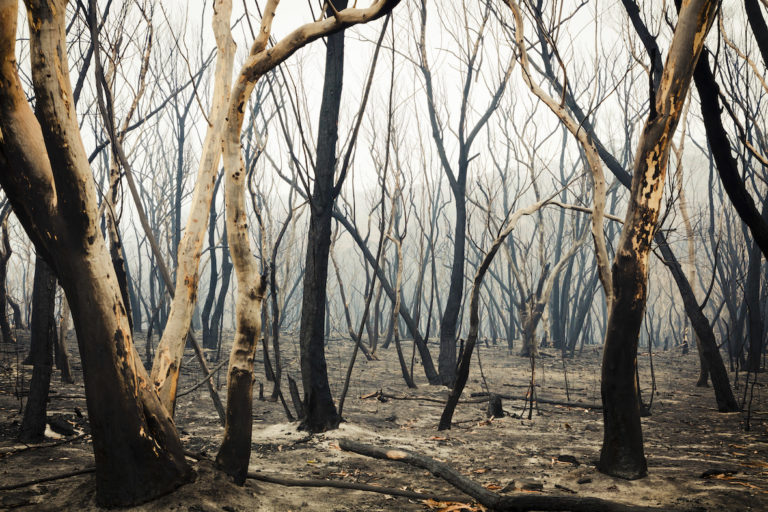


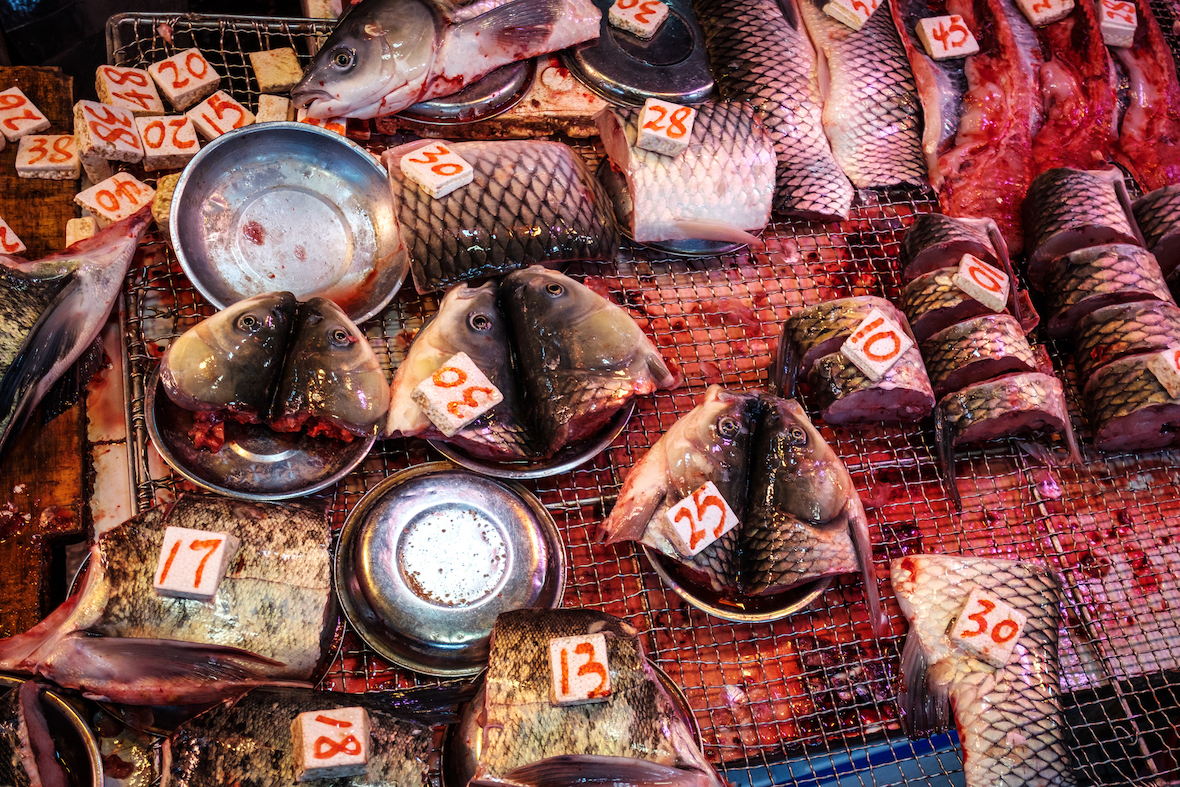

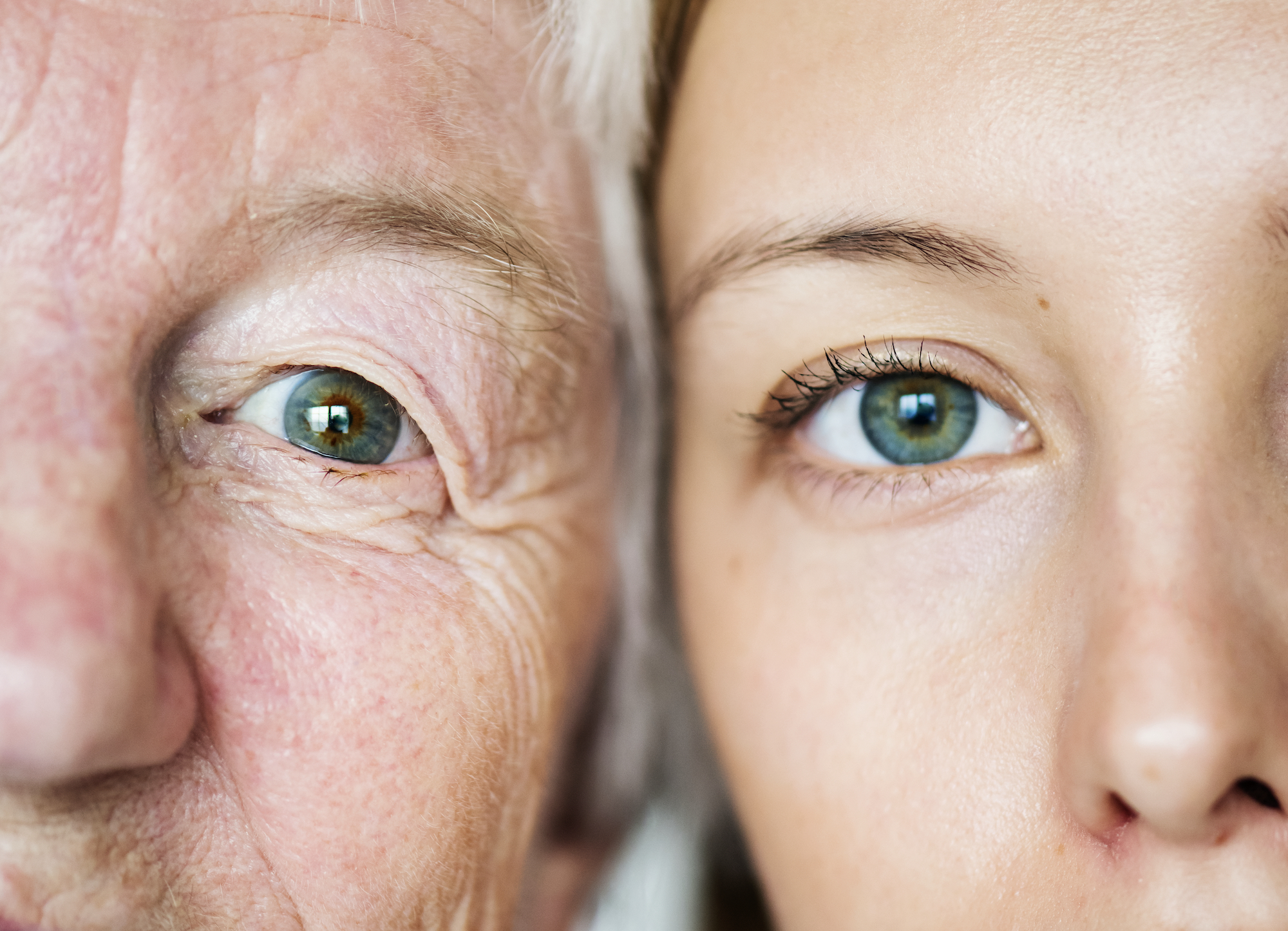
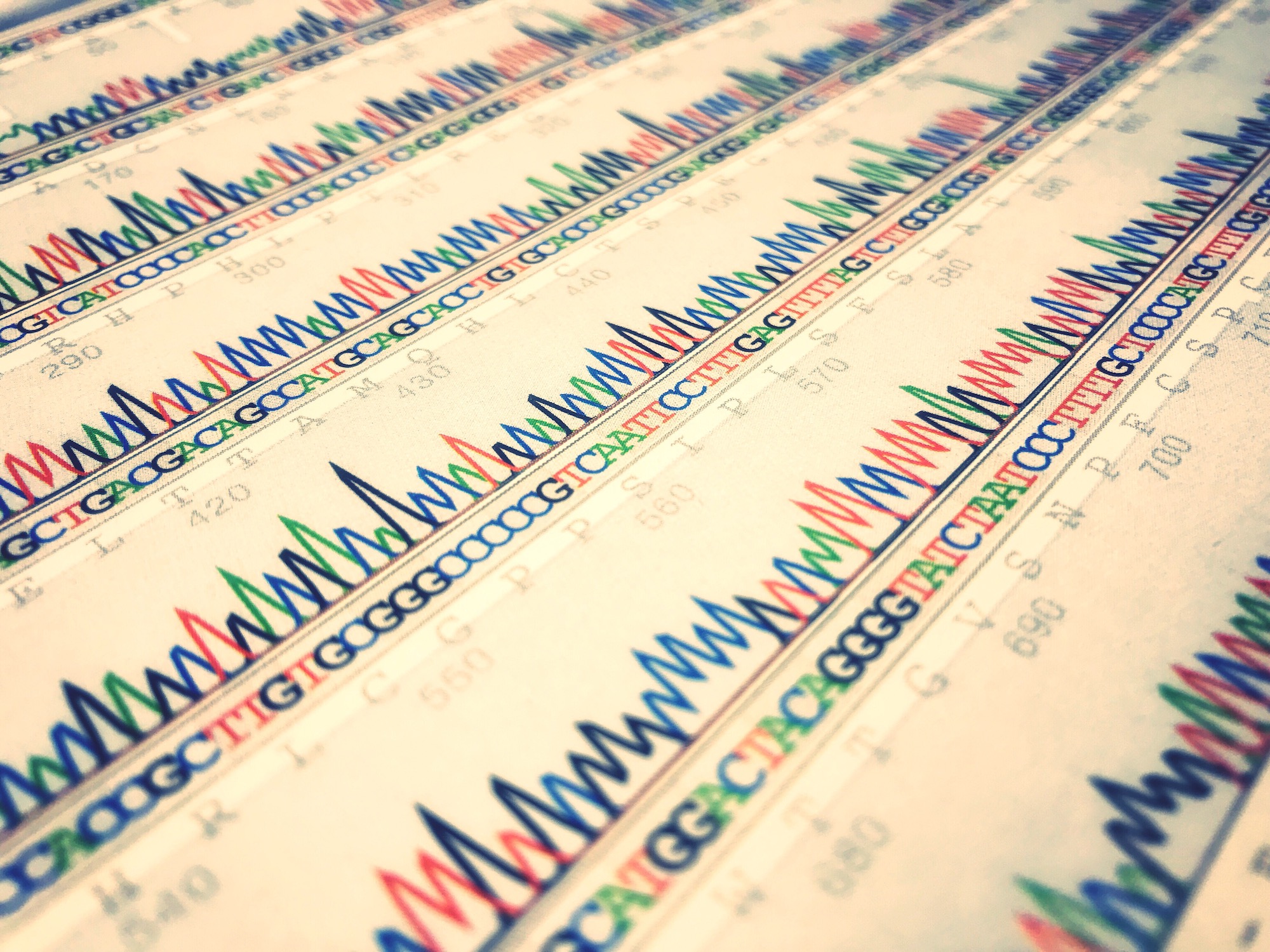
 Professor Nigel McMillan
Professor Nigel McMillan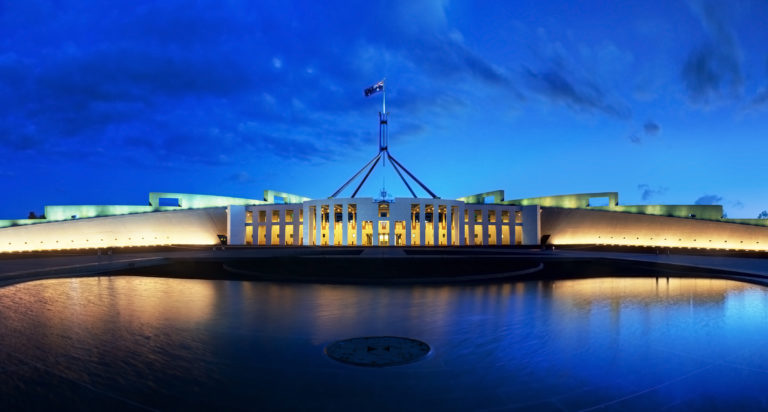
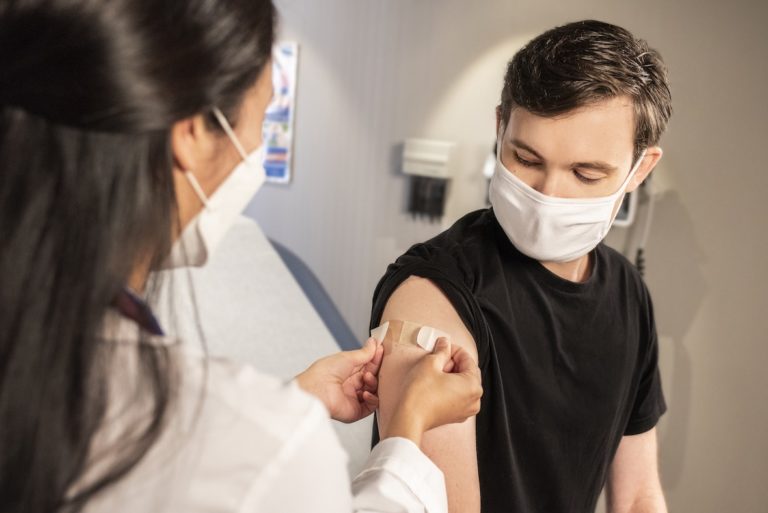
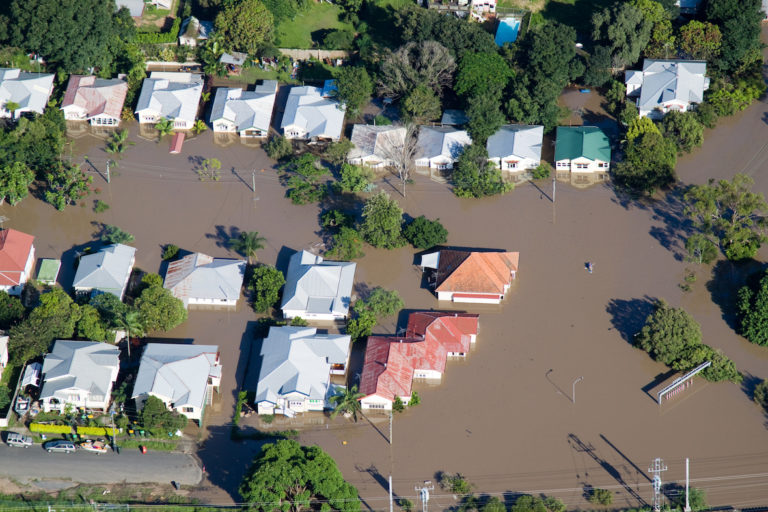
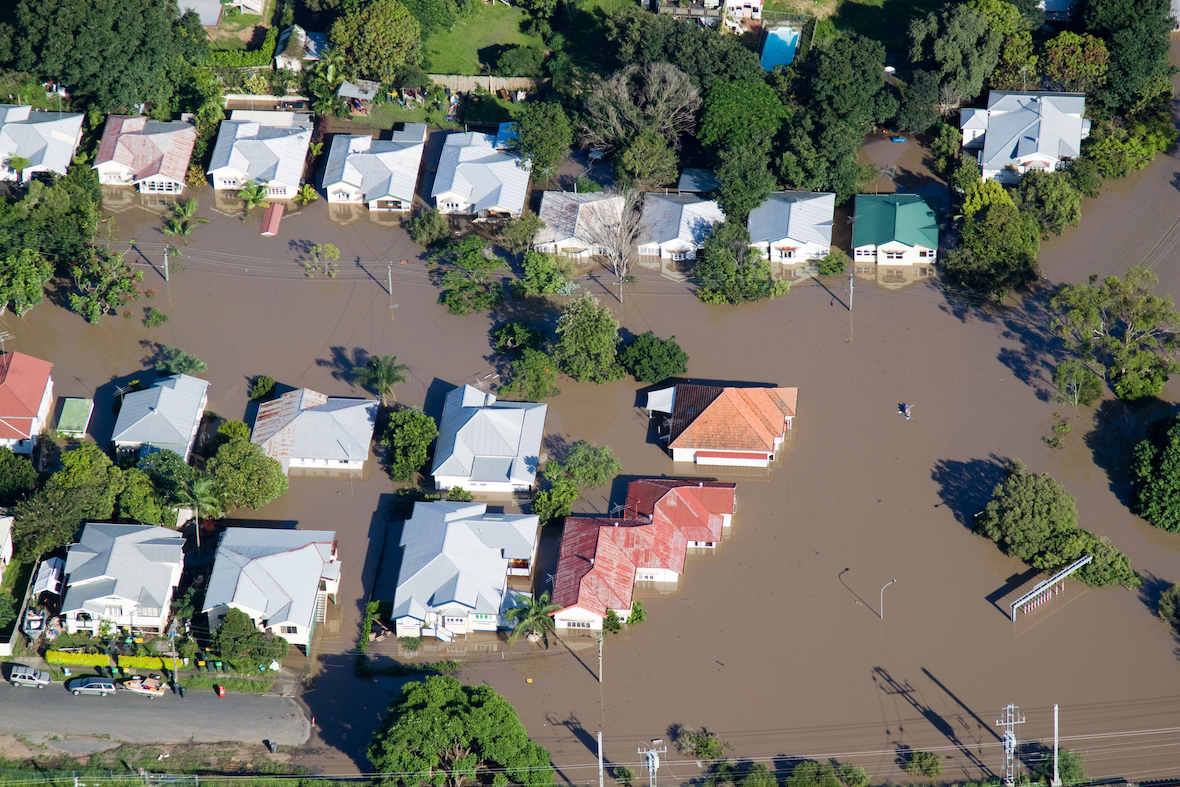
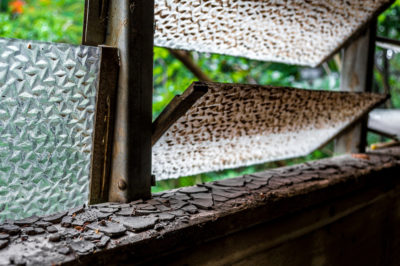
 Zoe Davidson is a graduate of
Zoe Davidson is a graduate of 
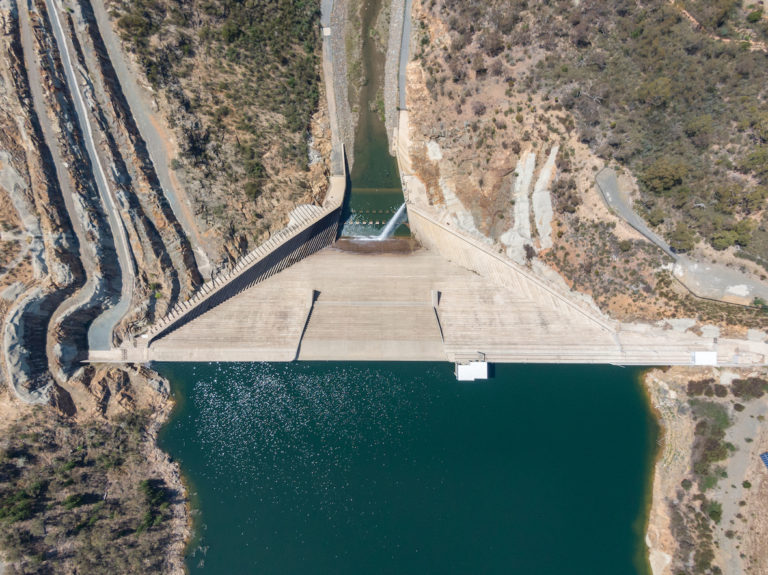
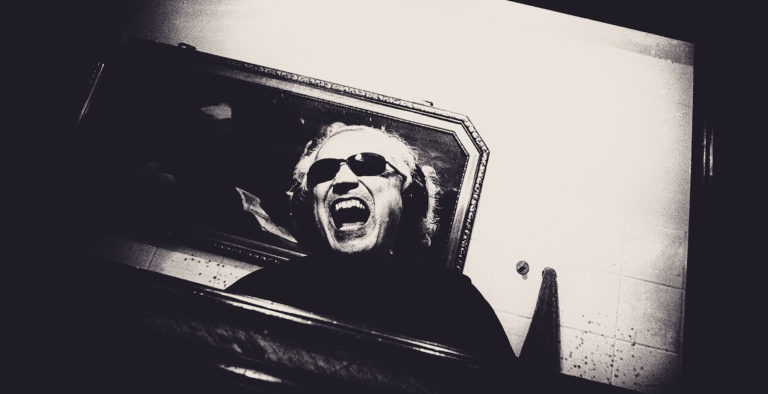
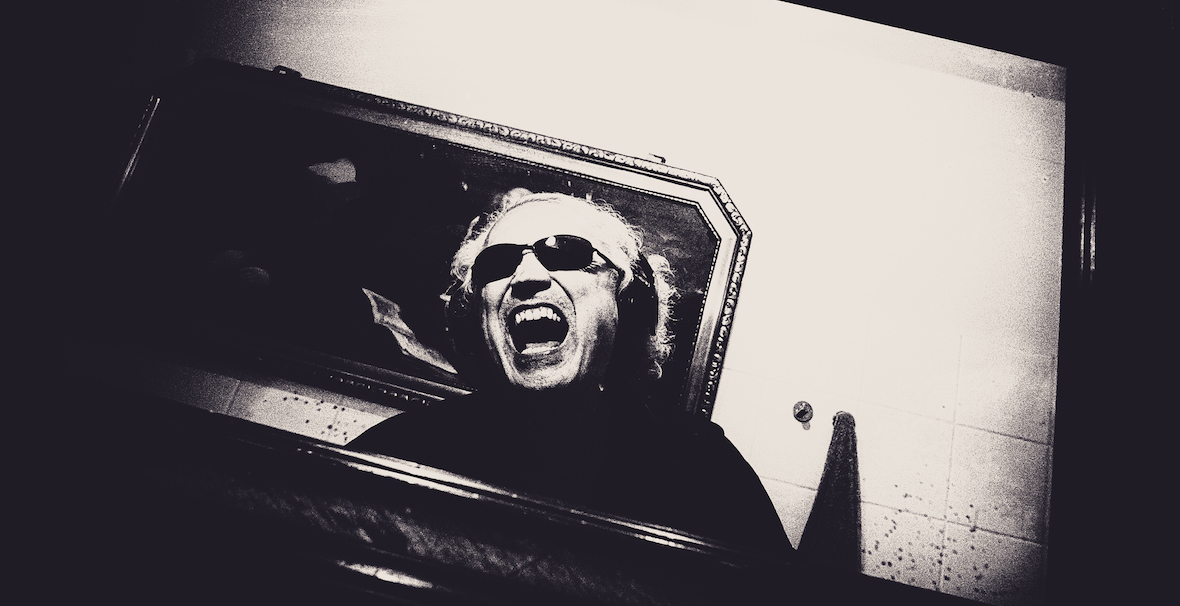
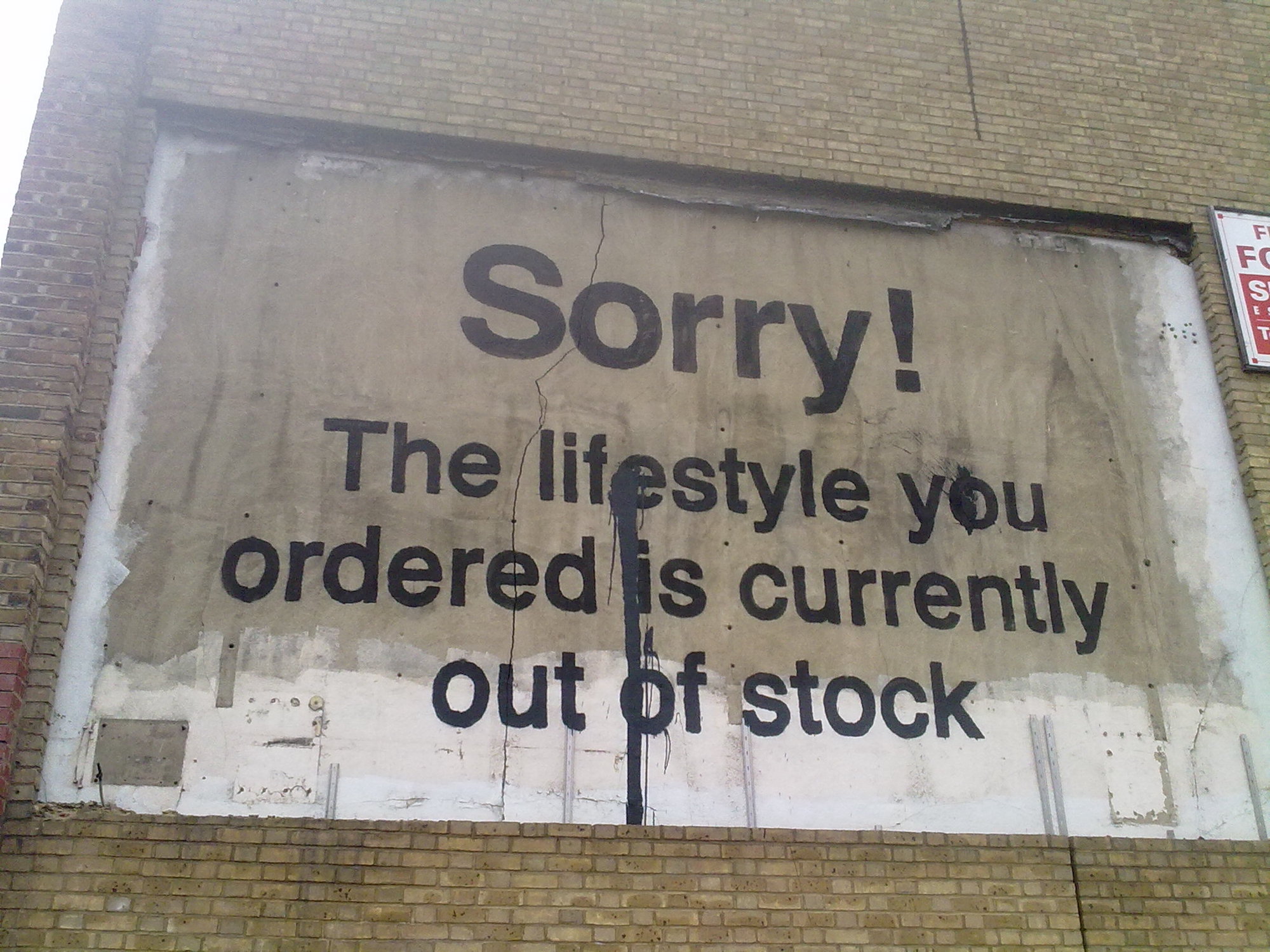
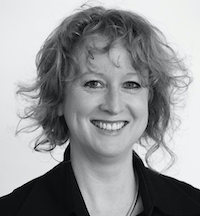 Ingrid Burkett is a social designer, designing processes, products and knowledge that deepen social impact and facilitate social innovation. She has contributed to the design of policy and processes in a diversity of fields, including community development, local economic development, disability, procurement and social investment.
Ingrid Burkett is a social designer, designing processes, products and knowledge that deepen social impact and facilitate social innovation. She has contributed to the design of policy and processes in a diversity of fields, including community development, local economic development, disability, procurement and social investment.
